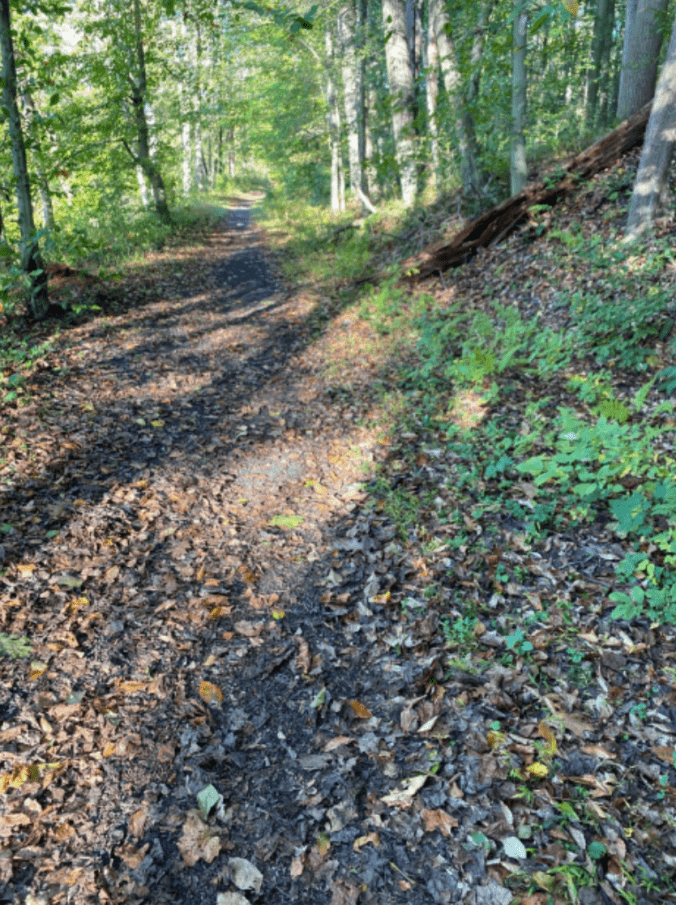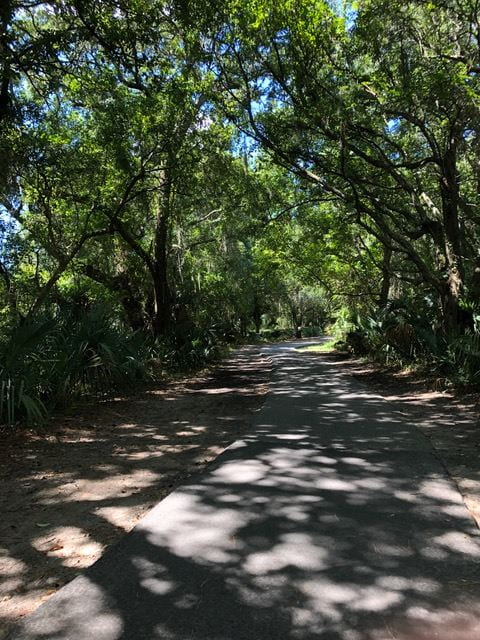Imagine you are in the photograph above. You are taking a hike on a beautiful day in Newark. The birds are chirping and the sun is dancing on the path in front of you. The best part about the hike is that the trail is a loop, so you don’t have to think too much about the direction in which you are going. Before you know it, you will end up back at the start. Deciding on a college major is, in its simplest sense, like this hike. Once you choose a major, let’s say a biochemistry major, for instance, there is a predetermined path to take in order to be handed your diploma. Each biochemistry major needs to take organic chemistry, calculus, metabolism, etc.
But if you hiked this trail often, you might wish that it wasn’t so straightforward. Hiking in a loop does not leave much room for exploration or adventure. Indiana Jones trailed through the rain forest and needed a bit more direction than, “follow the dirt path in front of you.” In a similar sense, having every student take the exact same set of courses doesn’t feed this sense of adventure. At UD, we have fortunately accounted for this inclination. The College of Arts and Sciences, the Alfred Lerner College of Business and Economics, and the College of Engineering, like the rest of the colleges at the University of Delaware, all require breadth courses. In fact, at almost any university, students are expected to take classes that are off the beaten path.
From theater, to studio art, to economics, to math, you may not cross paths with these subjects if it weren’t for this requirement. These classes may prompt you to pick up a minor. Maybe you really enjoy modern dance or public health. Or, it may reaffirm that you are going down the correct path (don’t worry, that C- in philosophy won’t count towards your major GPA). Regardless of what part of your college career these classes contribute to, they will provide you with experiences that you might not have had otherwise.
I learned that I had a passion for singing because of an elective in high school, and this colored my choice of breadth courses in college. I personally have gravitated towards classes in language and music, taking history of rock, choir, and linguistics. Although it’s entirely possible that another biochemistry major has taken history of rock or linguistics at some point, all of these classes were ones that biochemistry majors don’t particularly need in their career-oriented skill set. The major takeaway here is certainly not that every chemistry major needs to develop a keen sense of music or language, but rather that they should experience a broader variety of what is out there is to learn.
A professor of mine once leveled with their class: “I know this is not a subject that you may care about, but many others care about it. So, please give me 30 minutes to explain this perspective.” The class was, of course, absolutely happy to listen to the lecture. I think we all understood that even if it was not our core interest, it was an invaluable experience to learn something that was not in our expertise.
So, next time you are hiking and you see an overlook, or a tree to climb, spend some time climbing that tree, or paying special attention to the view of the forest. In other words, if you see a class you might like to take, but it’s out of your comfort zone, take the chance–you might learn something that you’ll carry with you forever.





